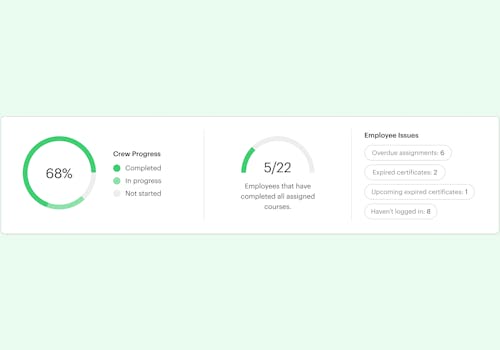The threat of cyber-attacks on critical systems onboard vessels has never been greater. Reports suggest that reliance on digital systems and remote working during the COVID-19 crisis coincided with a fourfold increase in maritime cyber-attacks from February last year.
An IMO resolution came into effect at the start of this year to mitigate this vulnerability. It guides ship owners and managers and requires cyber-risk management in line with the International Safety Management (ISM) Code. In response, Seably is launching a dedicated and comprehensive Maritime Cybersecurity Awareness Training for the maritime sector which directly aligns with the IMO requirements. The course is a collaboration between leading marine insurance providers Alandia and maritime cybersecurity specialists Deductive Labs.
Sensitive to the complex vulnerabilities within the maritime industry, the dedicated courses have been structured with in-depth content specifically developed by Deductive Labs in line with the established standards and regulations. The virtual training is practical and fulfills all maritime requirements. It provides hands-on instruction and is easily accessible and available both online and offline. Upon completing the training, both participants and shipowner organizations will receive the required certifications for IMO and ISM Code compliance for onboard audits.
Understanding of the Risks, Culture, and Behaviors
The Maritime Cyber-security Awareness Training is suitable for all levels of seafarers. It brings together the understanding of the risks, culture, and behaviors — onboard and onshore — with the tasks and technology necessary to protect systems, networks, programs, devices, and data from the increasing malicious cyber-attacks.
Commenting on the course content, Johan Sjölund, Business Development Manager for Deductive Labs said, “When designing these courses, we included specialized material that we know from experience creates the right frame of mind. Our goal is to eliminate weaknesses and vulnerabilities at all levels and within all systems. Cybersecurity is a complex reality. However, with over 15 years of security knowledge and experience in this field, we are confident that this bespoke training improves cybersecurity and goes beyond the specified regulations .”
Martti Simojoki, Senior Loss Prevention Manager at Alandia, confirmed their approval and collaboration of the superior quality of instruction contained within these courses. He said, “We have integrated our expertise in pro-active maritime security management and loss prevention with the practical, hands-on and in-depth knowledge of Deductive Labs. We are confident that this new course, now available on the Seably platform, is one of the few recommended and complete learning systems within the maritime sector.”
The introduction of this bespoke maritime training adds to the comprehensive and broad range of specialised content available within the Seably marketplace. Andrea Lodolo, CEO of Seably, said, “Unfortunately, cyber-attacks are on the increase. They are constantly evolving and becoming more common. An attack on a vessel’s critical systems could easily threaten the safety of a ship as well as the business of shipping. No one within our sector can ignore this risk. We are introducing this complete and timely package of training courses to strengthen on-shore and on-board defenses. These will equip ship owners and personnel with the required knowledge and skill-sets to ward off cyber threats.”
Created by seafarers for seafarers, Seably is the first maritime digital marketplace that brings together highly specialized content, cutting-edge technology, and teaching skills from seafarers, educationalists, industry specialists, insurers, surveyors, and a whole range of other related service providers. The launch of the Maritime Cyber-security Awareness Training extends the overall accessibility of global quality online maritime training worldwide. Seably educational modules include IMO and ISM code-compliant courses in addition to flag state-approved STCW instruction, legislation typed training, introductory programmes, reflective learning, and how-to courses.



